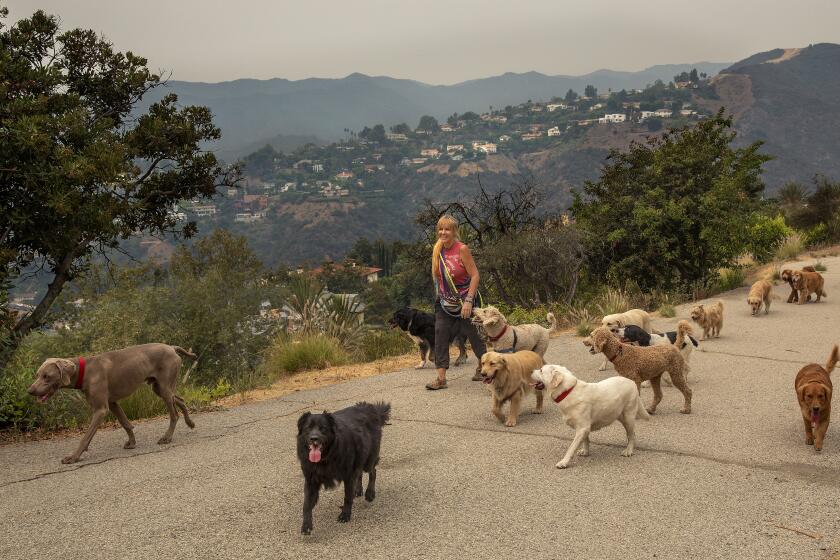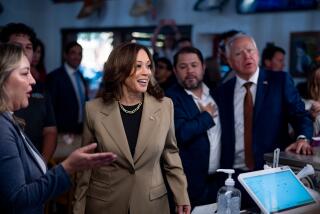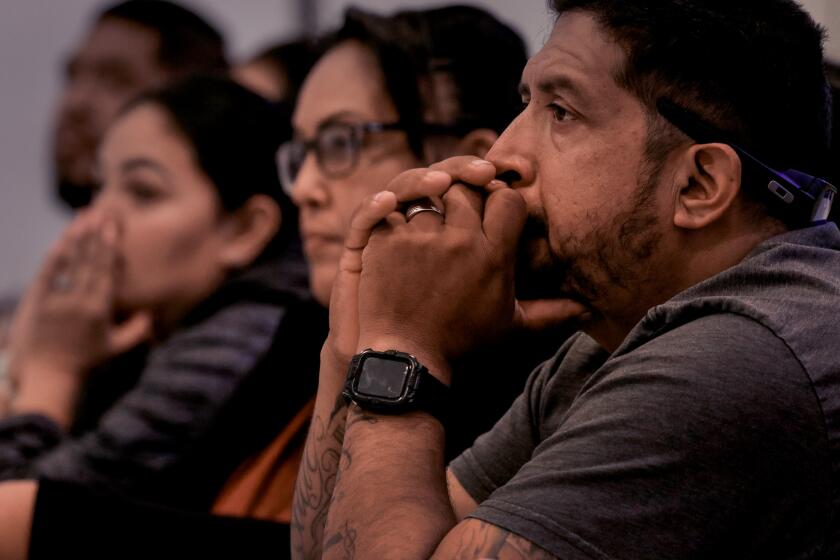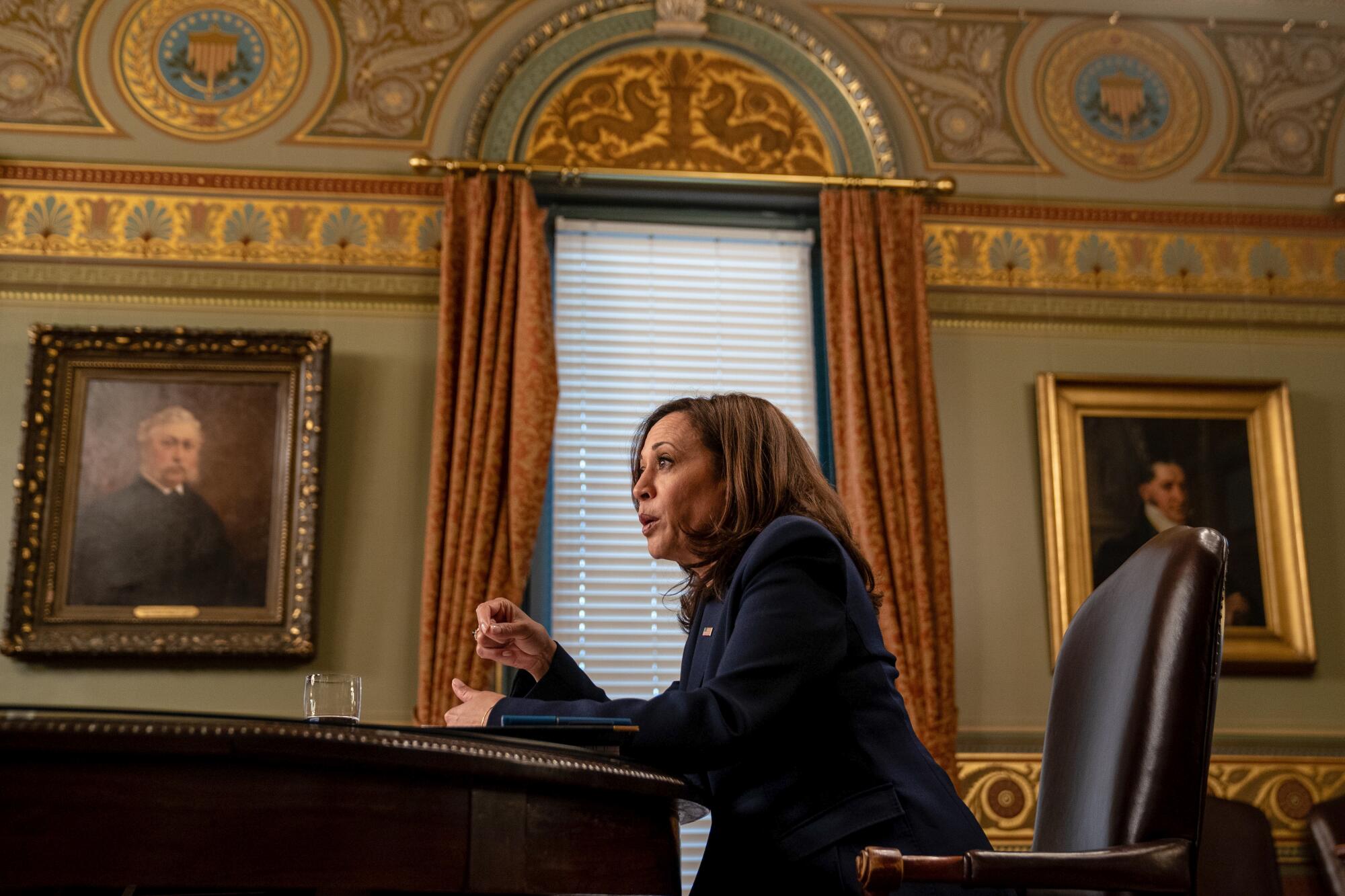
WASHINGTON — Vice President Kamala Harris was marinating in a fresh stew of commentary about her public polling that showed her home state approval numbers were almost as dismal as her national ones. Russia had just invaded Ukraine, forcing the vice president to accelerate her on-the-job training as the administration faced a defining foreign policy crisis.
It was the kind of week that has become routine for Harris, replete with stress and scrutiny. But for about an hour on Feb. 28, a cool and cloudy Monday, it felt like the old times, as she hosted 11 close friends and supporters in her ceremonial office in a building next to the White House. They checked out a new bust of Thurgood Marshall in the corner, shared pictures and hugs, and told her to stay strong.
“Of course, we addressed her as Madam Vice President, but she was Kamala to us,” said Amelia Ashley-Ward, a Harris friend who is also the publisher of the Sun-Reporter, the Bay Area Black newspaper that gave a greenhorn California politician one of her first big political endorsements. “I assured her that I still had her back.”
Harris does not have many moments like that anymore. Since taking office, the roster of confidants she relies on for advice and support has contracted and tilted away from her long-time home base of California. The narrowing of her inner circle reflects both the demands of the vice presidency, which leave little time for social calls, and her own tendency to be selective in whom she seeks counsel, according to interviews with longtime friends, advisors and current and former staffers.
The change has left close friends saying they are satisfied and pleasantly surprised by her efforts to stay in touch, even if the calls are understandably less frequent. Yet some of her earliest backers warn that her outreach has been insufficient to maintain a loyal base of support and could hamper her ability to make another run at the presidency. They also worry that Harris, unlike President Biden, lacks a full stable of trusted and tested allies to guide her through a vice presidency that has proved to be as daunting as it is historic.
The Times has covered the vice president’s political career since 1994. Since then, we’ve written over 2,500 articles on Harris, who is a California native and the first female, Black, and South Asian American U.S. vice president.
“She is sort of the antithesis of how Jerry Brown was, somebody with a rolodex of 50,000 people who would call Sam Nunn one day and Bono the next,” said Brian Brokaw, a former advisor to Harris, referring to the former Georgia senator and the lead singer for U2.
“She’s someone who keeps a very, very tight circle,” he added. “She knows and counts as friends plenty of influential people in all walks of life. She is not one to do regular check-ins. That is not her style. She is often reluctant to check in with people unless she’s fully briefed on what issues that person might care about.”
Her most frequent contacts are now with a small group of Washington hands, as well as her husband, Doug Emhoff, and sister, Maya Harris. Her family has become not just a personal outlet but a conduit to friends and allies outside the bubble of the vice presidency.
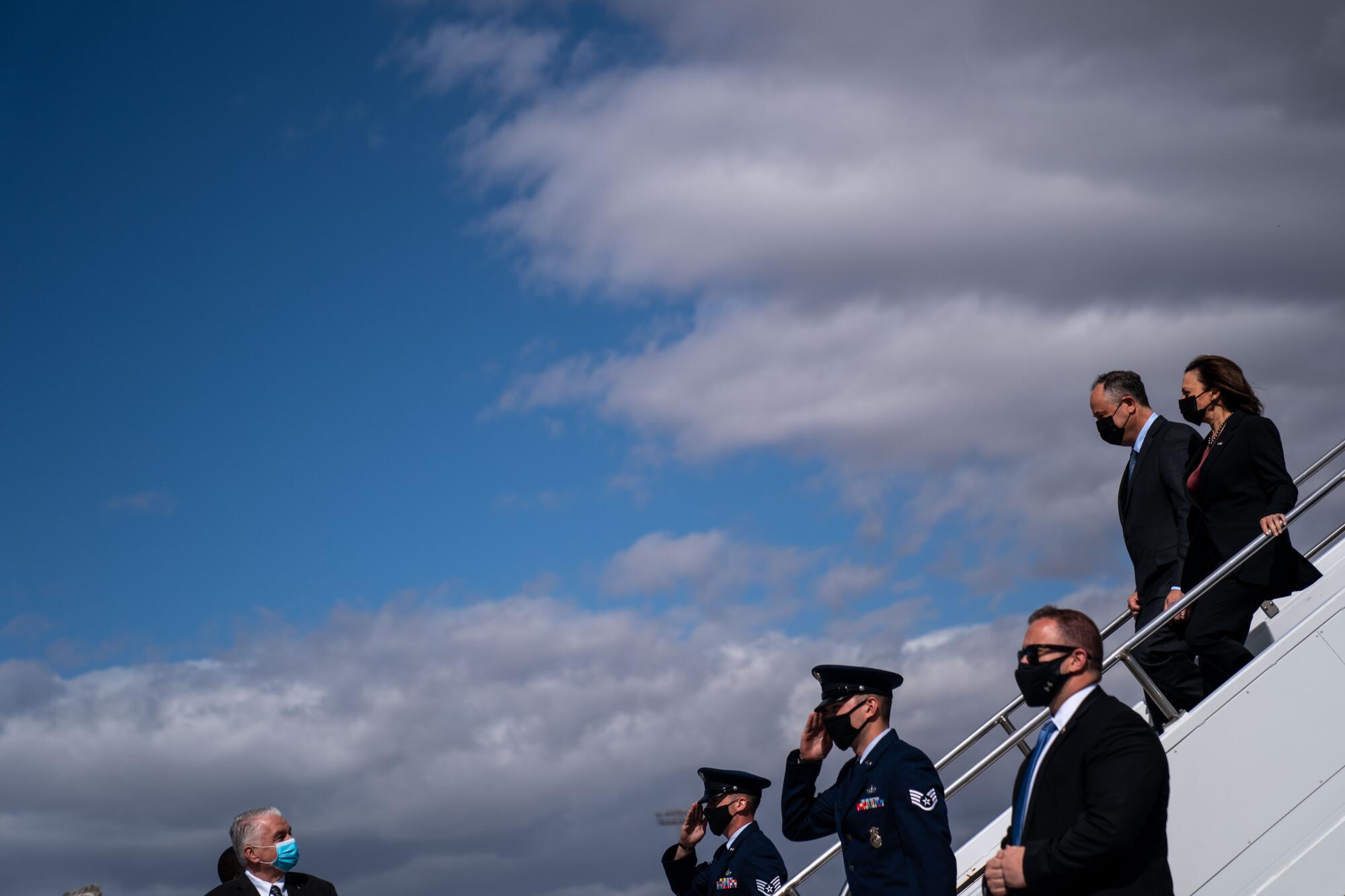
She has kept up some of her longtime social rituals — namely, birthday calls to childhood friends, former staff and political allies. But other communications have evolved, given the security, time and political demands placed on a vice president and the impact of COVID-19 restrictions on her ability to hold gatherings.
Harris last year sold her home in the Bay Area, where she grew up and spent most of her political career. She and Emhoff now count Brentwood as their home when she is not at her official residence in Washington’s Naval Observatory, a fortified compound that she enters and exits in a lengthy motorcade.
Since Sen. Kamala Harris launched a bid for the Democratic presidential nomination, the problems of the country she wants to help lead have inched closer to her Brentwood doorstep.
“When you’re president or vice president, your life is scripted,” said Donna Brazile, who managed Al Gore’s 2000 presidential campaign. “There’s that small window where you still want to know what else is going on in the world.”
Brazile is among a group of Washington veterans from whom Harris sometimes seeks guidance. She has also spoken with Hillary Clinton, the first woman to win a major party nomination for president, and Madeleine Albright, the first female secretary of State, who died Wednesday.
Minyon Moore, who served as political director to Bill Clinton, has emerged as an especially close advisor. Moore was recently chosen by the White House to help select and guide Supreme Court nominee Ketanji Brown Jackson through the confirmation process.
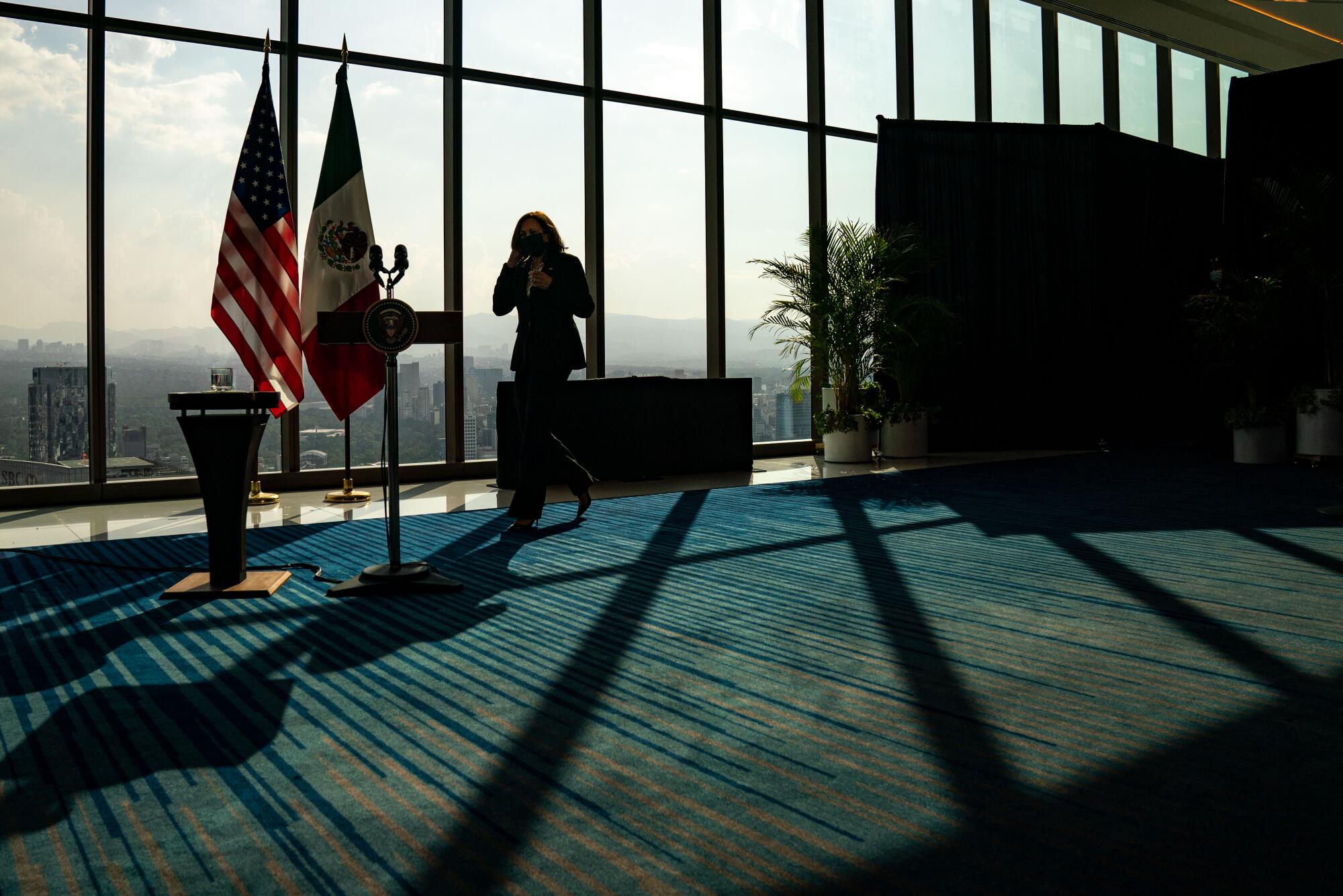
Harris has known Moore for more than a dozen years, checking in with her almost every time she visited Washington when she served as San Francisco’s district attorney and California attorney general, according to a former advisor. They bonded, in part, over the shared experience of frequently being the only Black woman in a room of power brokers.
Though Harris’ associates say she faces challenges tied to the office and her skills as a politician, they also take it as a given that the vice president is treated more harshly because of her race and gender. Harris is attuned to the perceived double standard, and sometimes grumbles privately about it. So far, the vice president has refrained from airing her frustrations.
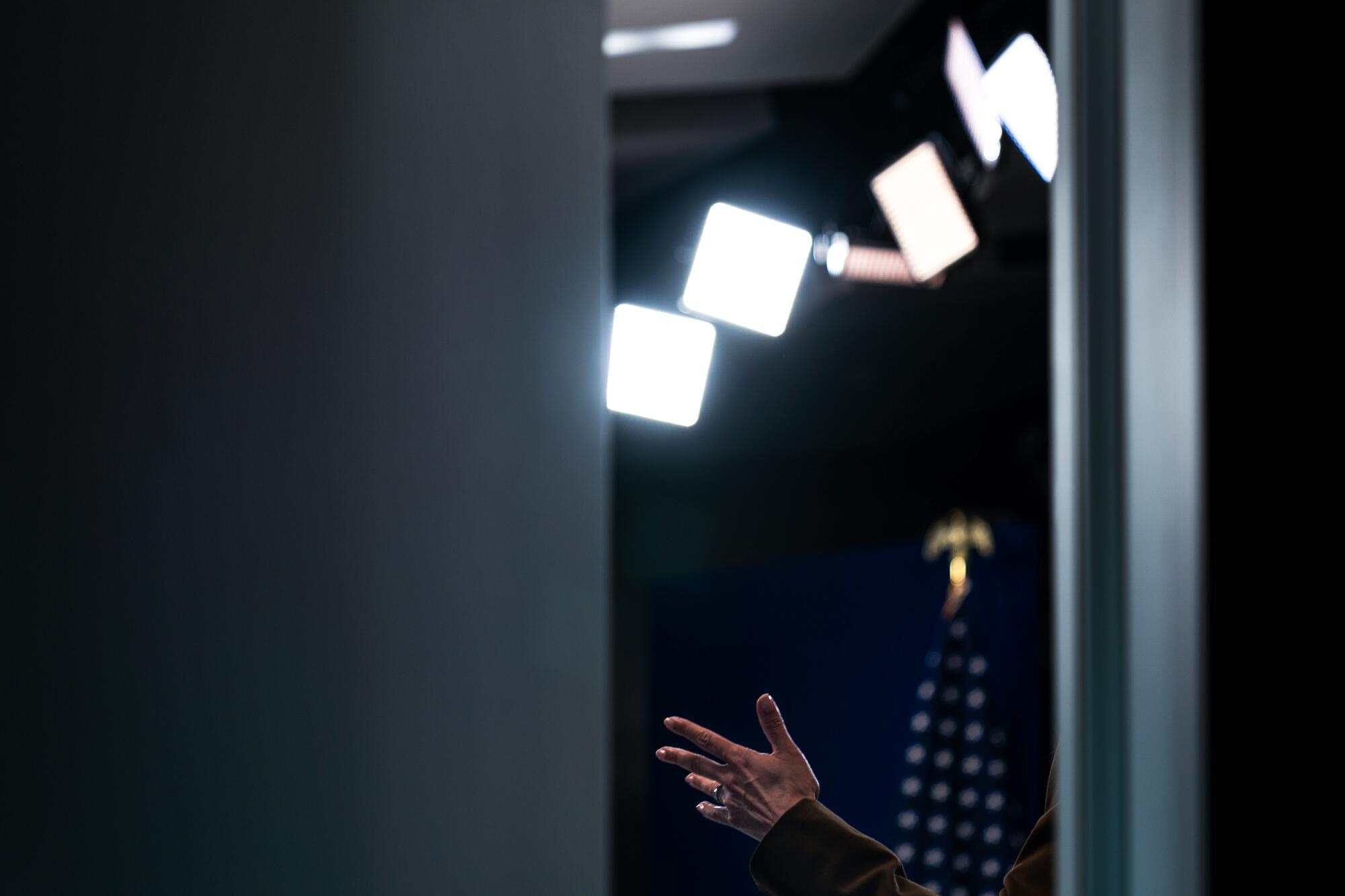
“Nobody has to remind her she is the first woman of color vice president,” said Holly Mitchell, a Los Angeles County supervisor and former chair of the California Legislative Black Caucus. “She wakes up with that reality and goes to bed with that reality every day.”
In a September birthday call, Mitchell asked Harris how she was doing.
“It’s a lot,” Harris replied in a sing-song quip that to Mitchell summarized the stress.
As it is with many politicians, the complicated dynamics of friends and family can be tricky for Harris. Her close relationship with her sister, Maya, is well-known. But it became a tinderbox during her failed run for the Democratic presidential nomination, when Maya Harris was seen as part of a power struggle over the direction of the campaign.
Though her sister has remained largely under the radar since Harris became vice president, current and past advisors say the former remains an important sounding board and channel to the outside world. One person with intimate knowledge of Harris’ office said the vice president’s sister sometimes speaks with her staff; a White House official said she only passes on messages and does not recommend whose calls should be returned. Maya Harris did not return a message seeking comment.
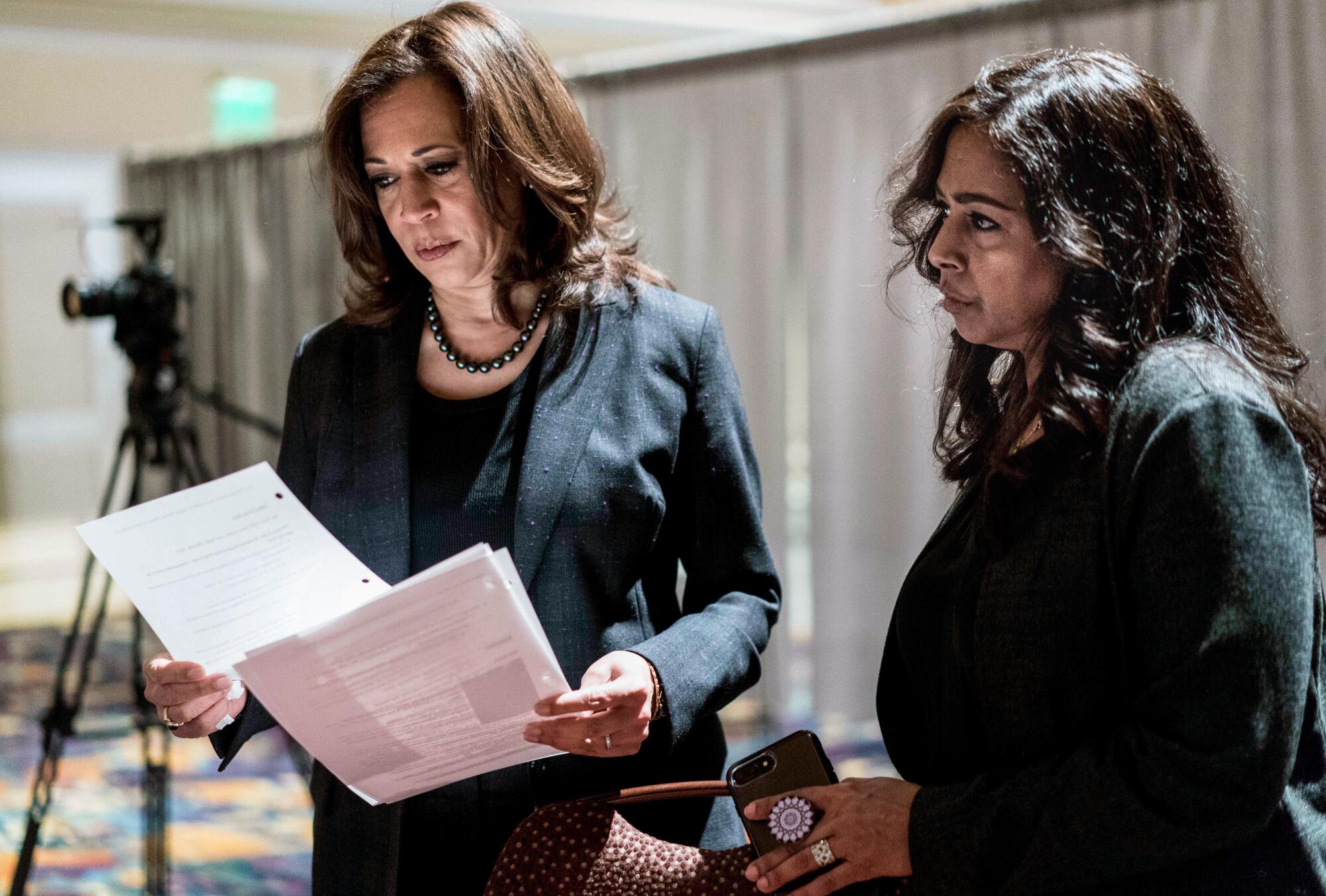
Another factor that supporters say has hindered Harris is that her operation has markedly few longtime aides. Allies say Biden administration officials insisted she jettison aides who worked on her presidential primary campaign, which was marked by staff infighting and a sharp attack on Biden’s record on desegregation that left some bad blood with his inner circle.
The result is a staff that has turned over and is not steeped in her political history or deeply familiar with Harris’ strengths and weaknesses as a politician.
“She does need someone that she can shut the door and say, ‘This is messed up’ or ‘This is hard,’” said one former longtime advisor. “And when you’re with brand-new people,” it’s harder.
Harris has maintained ties with Rep. Barbara Lee, an Oakland Democrat, and Sen. Alex Padilla, the Democrat who replaced her in the Senate, but has few other strong relationships on Capitol Hill. Several Democrats in the California congressional delegation, for example, said they‘ve had little contact with her since she took office. Though she shares San Francisco roots and a place in history alongside House Speaker Nancy Pelosi, they are not especially close.
“Most of their conversations are operational, about something that’s happening,” said Drew Hamill, Pelosi’s deputy chief of staff. “There’s not a lot of time for reflection in this business because there’s so much incoming.”
The drift away from California could hamper Harris’ prospects of running for president — given the state’s preeminence in Democratic fundraising and activism.
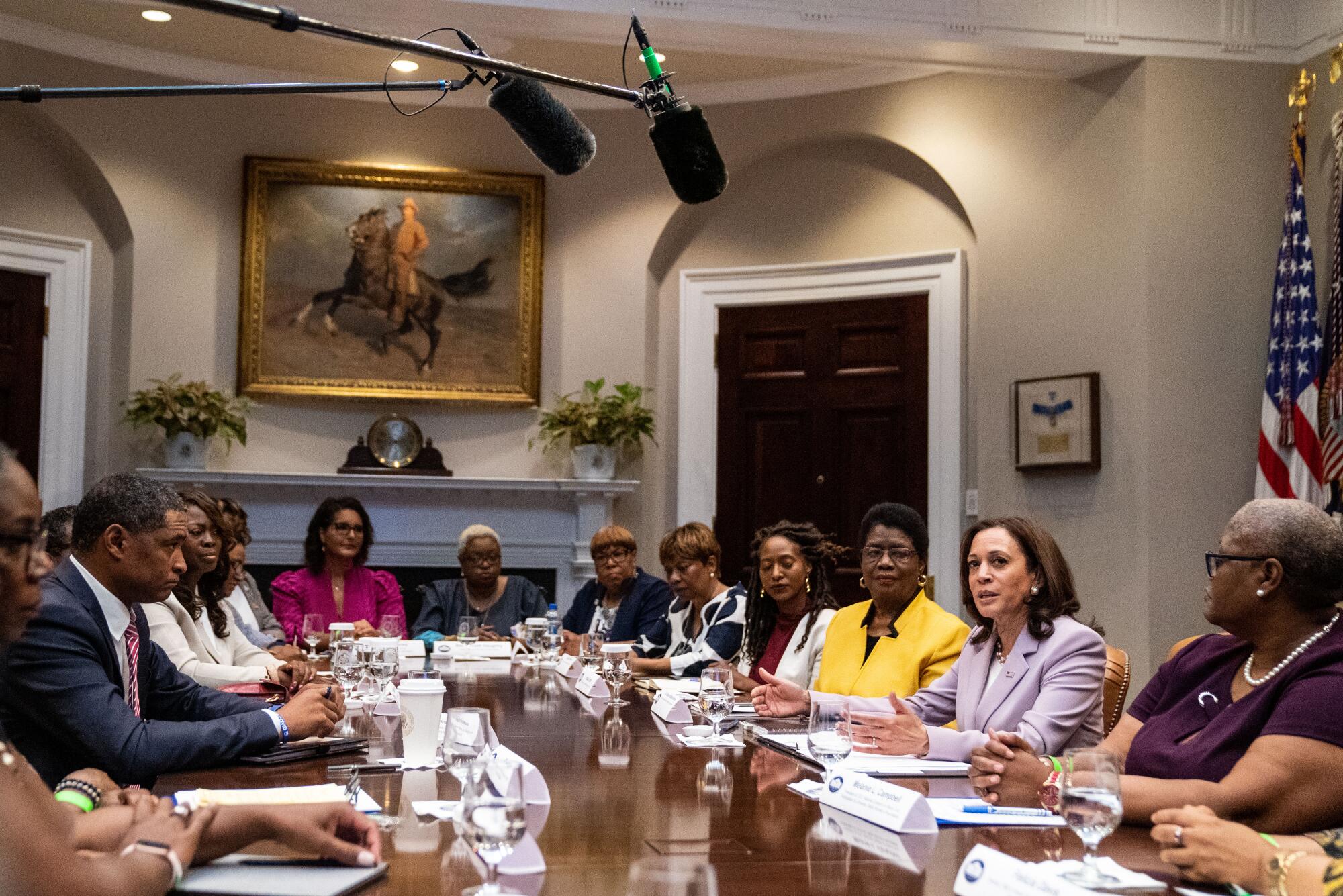
“Kamala’s become vice president. She’s in Washington and everyone else is out here,” said Mark Buell, a Democratic donor who led fundraising for Harris’ first election as San Francisco district attorney and also served as a top money person in her statewide elections. “Unless Kamala has some other political ideas and wants to cultivate a base, it seems like she’s pretty happy just being vice president.”
Others say Harris is wisely avoiding any appearance of tending to a political operation that is distinct from Biden’s.
Identifying the people most frequently contacted by Harris is tricky. Those she calls and meets are discreet, so they can maintain their access. Former contacts who lose touch can be cagey, lest people think they are no longer players.
“Anybody who publicly brags about how much they talk to somebody is either embellishing or not a confidant,” said one former advisor who, like many others, requested anonymity to speak candidly about Harris and to avoid sounding like a hypocrite.
Harris’ office made clear in a statement that she does not like her friends or acquaintances talking out of school.
“The Vice President regularly engages with her California colleagues, friends and family across the country. These conversations are important to the vice president as is their confidentiality,” spokeswoman Sabrina Singh said in a statement. (Singh, who has worked for Harris since the 2020 campaign, is departing for another job in the administration.)
One of those who has kept in touch is Derreck Johnson, an Oakland restaurateur who has been close with the Harris sisters since he was 16. He has spoken by phone with Harris, he says, five times since the inauguration. Though he did not divulge details of the conversations, Johnson said he worries about Harris and believed that the pressures of the job were weighing on his longtime friend.
“Anyone who is constantly criticized when you’re trying to do the right thing — that’ll affect anyone. It’s human nature,” he said.
Johnson said that he believes that when doubt creeps in, Harris turns to the confidence she gained from her late mother, Shyamala, a single parent who raised her while working as a cancer researcher.
“You know you’re doing this for the right reasons and you rise above that,” Johnson said.
But Harris hasn’t spent much time venting to him about the scrutiny she faces, which Johnson said she considers to be part of the job. Rather, he said, their calls have focused more on how Johnson is doing — including his own campaigns for local office in Oakland — in an effort to stay connected to a friend and her hometown.
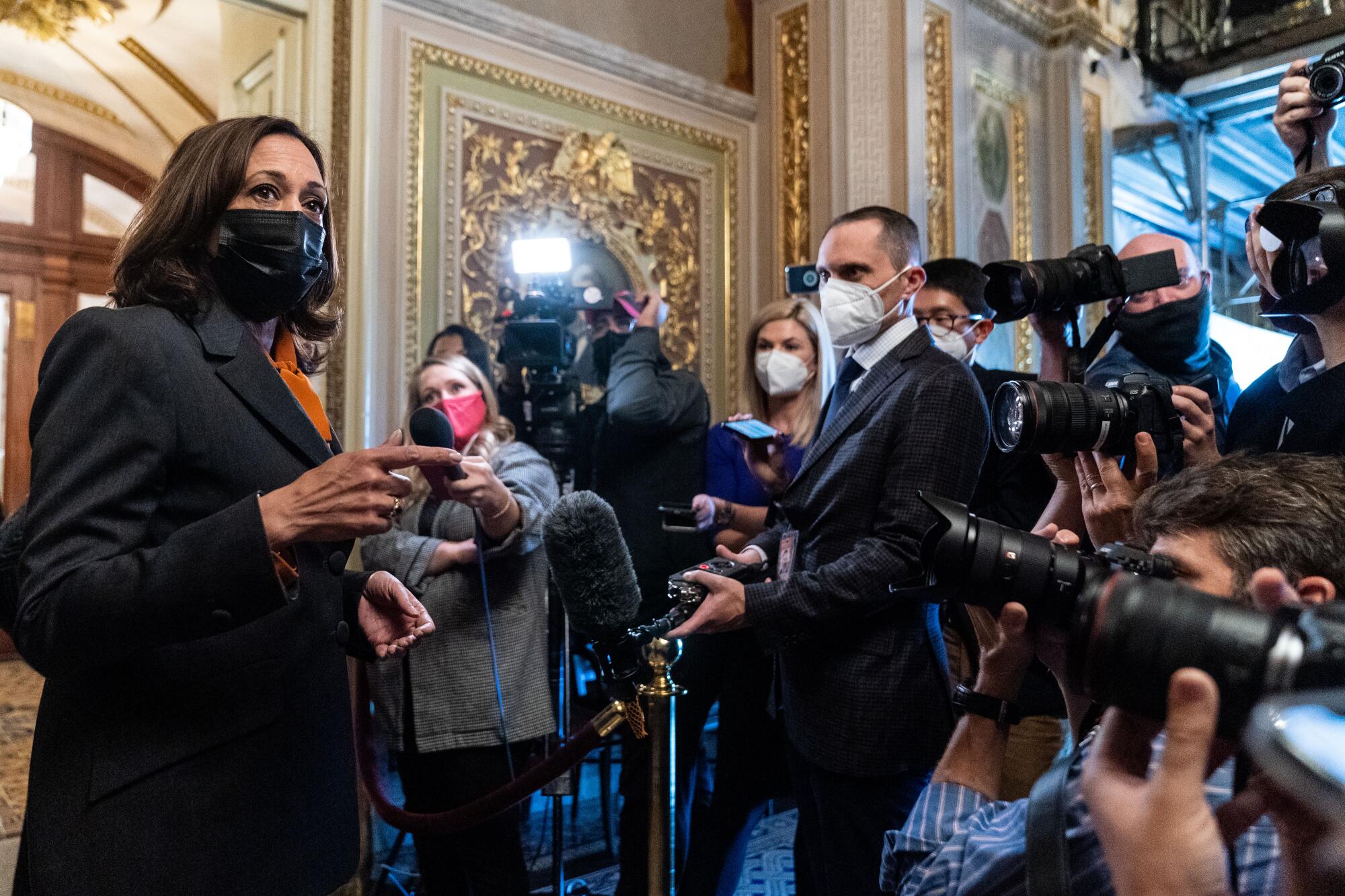
More to Read
Get the L.A. Times Politics newsletter
Deeply reported insights into legislation, politics and policy from Sacramento, Washington and beyond. In your inbox three times per week.
You may occasionally receive promotional content from the Los Angeles Times.
